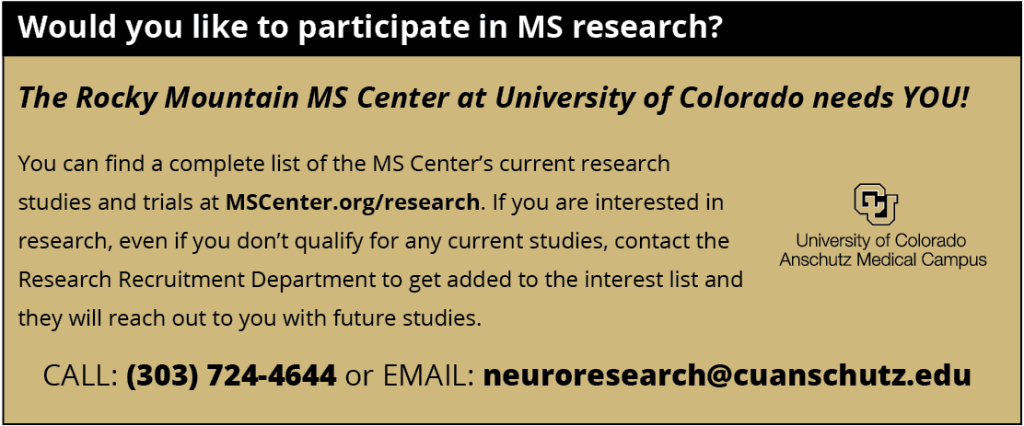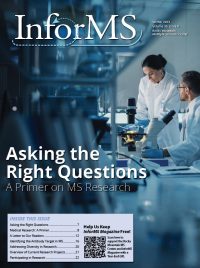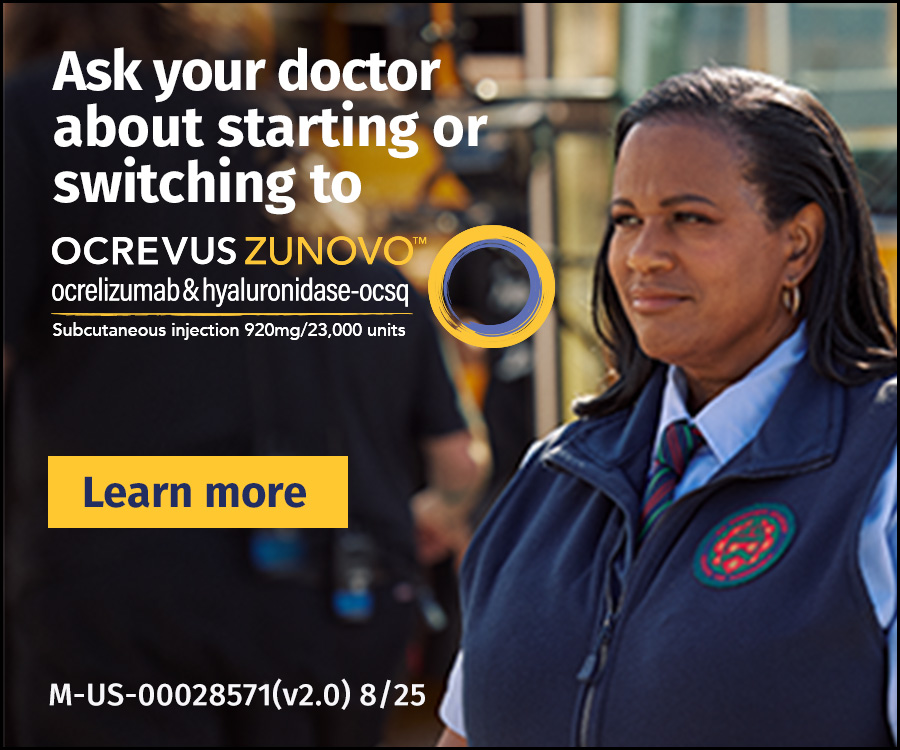InforMS recently talked to Ben Limmer, a participant in the RISE-MS study. This project aims to establish a risk profile by identifying genes, biomarkers and environmental factors that are associated with the earliest stages of MS. Ben was an ideal candidate for this research, having two close family members with MS but not having the disease himself. We asked Ben about his experience participating in this important research.
Why did you choose to participate in a research study?
My dad and his sister were both diagnosed with MS when I was young. In the past, I haven’t been able to participate in research studies because I don’t have MS. However, RISE-MS was a unique opportunity to give back in a non-monetary way. We know so little about family connections relating to MS, so this was a special opportunity to give back to the community.
Which research study are you participating in, and what has been your experience so far?
I took part in the RISE-MS study. It was straightforward: a quick session in an MRI machine, some bloodwork, and a food survey. The longest part was the food survey because those templates take a long time, and you have to think about strange questions like “How many blueberries do I eat in an average week?” but I was in and out in a few hours. The researchers asked me to return for a follow-up session a few years later, where we repeated the MRI, bloodwork, and food survey. Again, the process was easy and quick.
The MRI scan during the RISE-MS study was the first time I experienced being inside an MRI machine. My dad has had countless MRIs before, so my experience gave me a better understanding of what it’s like. It’s a bit claustrophobic, and the machine’s sounds are oddly musical. Also, I learned that you get headphones to listen to music of your choice during the scan. During my second session, I came ready with a Pandora station in mind.
In fact, it turned out incredibly useful to have my MRI images from the study because I had a health issue where the doctor said, “We wish we would have known what your brain looked like a year or two ago.” Conveniently, due to the RISE-MS study, I had these images! I spoke with someone at Anschutz, and they sent over the images for the doctor to review. Free healthcare, how cool is that?
When I first considered participating in the study, I considered what might happen if they found something unexpected as part of the study. However, as with most health-related things, I decided I’d want to know about any issues sooner rather than later. Early detection usually results in the most options for treatment and more positive outcomes.
What has been the most rewarding or valuable part of participating?
Being able to give back in a more tangible way was the most rewarding part of participating. In the past, I’ve primarily given back via fundraisers and financial donations. While monetary donations are essential to fund Rocky Mountain MS, the RISE-MS study was a unique way to give back something uniquely mine. My body is uniquely mine, and maybe this data can help researchers better understand MS and develop more life-improving treatments. If I could help tangibly make someone’s life better by participating, that’s hugely rewarding for me.
Would you recommend participating in research to others?
Based on my experience with RISE-MS, I would absolutely recommend participating to others. It was a manageable commitment that provided researchers with additional signals they could use to understand MS better.
My dad has always opted into the newest, most progressive treatment options available to him and, luckily, has had a great health outcome so far. We need people to participate in research studies to continue evolving our understanding and treatment options. So, having the opportunity to participate in research was an excellent way to give back and honor those living with MS.







